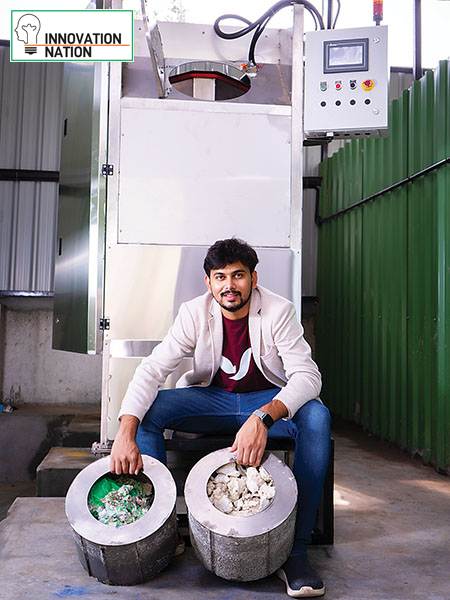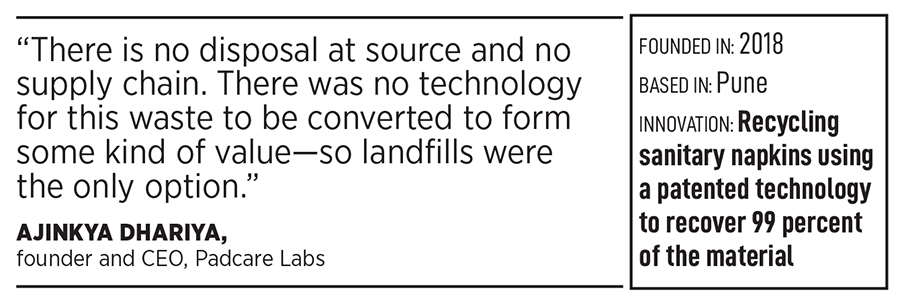
Padcare Labs: Solving sanitary napkins disposal conundrum, one bin-full at a time
With patented technology, Padcare Labs has created a process called 'menstrual hygiene management' that takes care of recycling used sanitary napkins, from collection to processing
 Ajinkya Dhariya, Founder and CEO, Padcare Labs
Image: Neha Mithbawkar for Forbes India
Ajinkya Dhariya, Founder and CEO, Padcare Labs
Image: Neha Mithbawkar for Forbes India
Ajinkya Dhariya asked me, “How many years do you think it takes for sanitary napkins to decompose?” A couple of years, I said. Dhariya responded, “You will not believe this, but it takes 800 years for unrecycled pads to decompose.”
In 2018, Dhariya was visiting a landfill near Pune, when he saw ragpickers picking up used sanitary napkins and diapers with their bare hands. Dhariya couldn’t believe what he had seen. “Imagine the kind of health risk,” he says, “This was the trigger point for me, I knew I had to do something about this problem.” This is what led him to start Padcare Labs.
The innovation for Padcare Labs was not just to look at solving one stakeholder’s problem, but target the entire value chain—from collection to processing. For starters, Dhariya says, “I realised the user only cared about wanting to dispose the sanitary napkin. So we started by providing Padcare bins—where sanitary napkins could be stored for 30 days without any odour or bacterial growth.” These pads are then collected from all these locations and brought to a material recovery facility (MRF).

They are then processed through Padcare’s patented technology, which, in 20 minutes, recovers close to 99 percent of the material at low cost, separating it into pulp and plastic. “This pulp can be used across various industries such as paper, packaging etc. We convert the plastics into granules and then use it to make the Padcare bins,” he explains.
Also read: Why innovation is needed to battle wild wild waste
This entire process, which Dhariya terms as ‘menstrual hygiene management’, is what Padcare provides as a service to its clients. Though the Padcare bins are free of cost, customers are charged per pick-up and per bin. This accounts for 80 percent of the revenue and the rest comes from output waste, which is pulp and plastic, and selling products that are made from these. With close to 250 clients, including Mahindra, P&G, Goldman Sachs and Hero Group, the company is clocking in a turnover of ₹2.2 crore. Padcare Labs has over $0.5 billion of funding including grants from organisations such as BIRAC, Niti Aayog, Infosys Foundation, Tata Trust and a few more.
Going forward, Dhariya has big plans for the company. Apart from geographical expansion both in India and internationally, they hope to work closely with residential communities as well. “Also, we are currently experimenting to see if this technology can be used for other materials as well, including diapers, tetra packs and textile waste,” he says.
(This story appears in the 24 February, 2023 issue of Forbes India. To visit our Archives, click here.)


















